Collegiate Fishing Makes Ny Times Article
Slide Show|14 Photos
Suiting Up for the Bass Fishing Team
Suiting Up for the Bass Fishing Team
CreditGreg Kahn for The New York Times
MARBURY, Md. — Before daybreak one drizzly October morning, 44 boats representing 31 colleges organized themselves around a marina at Mattawoman Creek, a tributary of the Potomac River. Light from the GPS navigation systems was all that illuminated the faces of the drivers, who wore wool caps and camouflage hoodies.
By 7 a.m., after a recited prayer and a playing of the national anthem, the teams were off, zipping across the water to their fishing spots.
The winning team would take home $4,000, a handsome sum, at least by the standards of college students. The top 10 teams would automatically advance to a national championship tournament in April with a grand prize of $30,000. And unlike contestants in events sanctioned by the N.C.A.A., many of the participants could not only accept the earnings but also do what they wanted with them: invest in equipment, support future fishing teams or buy whatever they desired, be that textbooks or beer.
Given that approach, those looking for a glimpse of what college sports might look like when athletes can collect paychecks might find a template in the teams that are traversing the nation’s rivers and streams rather than those on fields or courts.
Photo
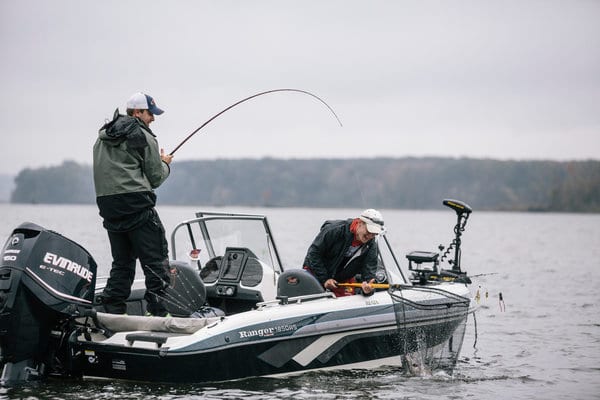
SUNY Plattsburgh teammates Ricky Lee, left, and Brendan Bolis, right, haul in a fish during the FLW College Fishing Northern Conference Invitational. Credit Greg Kahn for The New York Times
As the N.C.A.A. works to reform its rules amid severe criticism that they are outdated and that they exploit the athletes who play the games, it has taken steps, sometimes grudgingly, to loosen its grip on the administering of athletics. In August it voted overwhelmingly to give its five most powerful conferences greater autonomy to make their own rules, a move that could pave the way for amateur athletes to receive a portion of the enormous revenue that college programs take in.
The college fishing circuit — outside the N.C.A.A. umbrella and administered by various fishing-tournament organizations — has grown to include more than 600 registered clubs, from about 90 in 2009, and these clubs have gotten serious. Many have sponsors who outfit them with boats and gear or pay for lodging, and some teams are actively recruiting high school anglers. Others have full-time coaches. At least two colleges now offer scholarships.
And without the N.C.A.A.’s involvement in the sport, college anglers can compete alongside professionals, win prize money and return to the classroom without any consequences.
“It’s kind of evolved into a nice counter to what the N.C.A.A.’s quote-unquote stated mission is,” said David Ridpath, an assistant professor of sports administration at Ohio University and the president-elect of the Drake Group, which pushes for educational reform in college athletics. “Here you have college kids competing, earning money. I’m sure their academics aren’t much different from others that are out there. They’re not corrupted by the money.”
And there is money out there. The winner of last April’s college fishing national championship, the University of Minnesota, won the $30,000 prize and was entered into the Forrest Wood Cup, a top professional tournament, in August for an opportunity to win $500,000. The Bassmaster Classic, a competition organized by a different league, the Bass Anglers Sportsman Society, typically airs on ESPN and has an overall purse worth about $1 million, up for grabs to any participant, college or professional.
Photo

Adrian College’s fishing team has a promotional poster. Credit Holly Smith/Adrian College
Some college fishing teams are more akin to a Frisbee club, with only a few members. But many teams have dozens of anglers, including Penn State’s, which has 45. Most simply have club status and operate outside the purview of a college’s athletic department.
Each club’s bylaws dictate what teams can do with the money they earn, and often it is redistributed back into a general pool of funds. But Brett Warrick and Sid Hoover, teammates on Ohio State’s club team, said they could keep a portion of whatever they earned.
The Buckeyes’ football program, on the other hand, generates close to $60 million every year, according to Forbes, and the football players are prohibited from reaping any financial benefit for their effort.
College fishing has caught hold in part because competitors are chasing the prize money, but also because sponsors, as well as the professional fishing circuits, are trying to entice younger participants to the sport.
“It just went beyond what we could imagine,” said Kevin Hunt, director of tournament operations for F.L.W. College Fishing, which began in 2009. “When you’re in that circuit, you know who the big man is. These guys are competitive — they walk around with their chest pumped out. It’s just like football and basketball.”
Photo
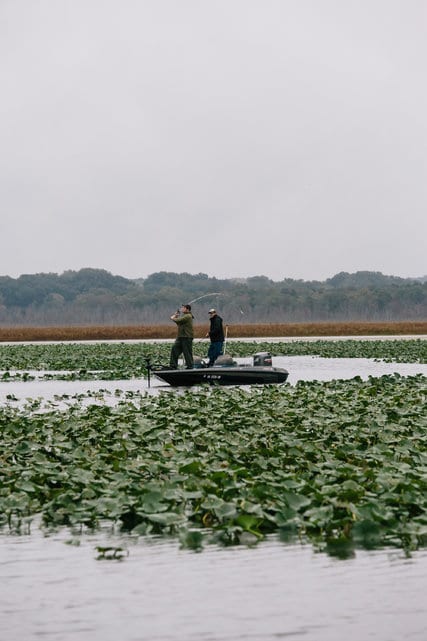
Travis Riley, left, and Seth Winslow made up one of three teams from Christopher Newport, a university in Newport News, Va. Credit Greg Kahn for The New York Times
F.L.W. College Fishing, run by Fishing League Worldwide, which organizes the college national championship, is one of three groups that primarily run college fishing; the others are Bassmaster College Series, run by BASS, and Cabela’s Collegiate Bass Fishing Series, run by the Association of Collegiate Anglers. Each circuit has its own rules and tournament structures, and most college teams can fish in any of the circuits whenever they can.
When administrators at Adrian College in Michigan, an N.C.A.A. Division III program in other sports, decided to initiate a bass fishing team last winter, they went all out. They hired a full-time coach, Seth Borton, and enlisted top-line sponsors like Ranger boats and Mercury motors to put together one of the nation’s finest fleets. They even designed merchandise, Borton said, and sold out more than 140 T-shirts bearing the logo for Bulldogs bass fishing in weeks.
“There’s 100 percent an opportunity for us to bring in funds, for sure,” Borton said, adding, “The team essentially becomes a product that you’re able to sell.”
According to Hunt, a handful of colleges have begun offering scholarship money to top anglers, including Bethel University in McKenzie, Tenn. There, Coach Garry Mason oversees the fishing program, five bass boats, close to a dozen major sponsors and a pool of applicants that has grown to the point that he has been forced to turn people away.
Continue reading the main story
Recent Comments
- See All Comments
“I’m attracting students from all over the country,” Mason said.
Photo
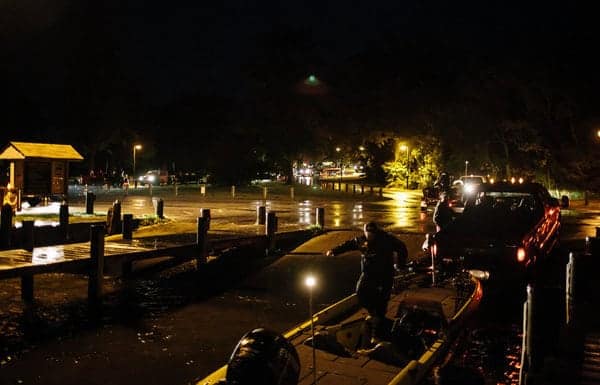
Teams drop their boats in the water before sunrise during the competition. Credit Greg Kahn for The New York Times
On a recent rainy and raw Saturday here, anglers strategized in boats near the docks at Mattawoman Creek, about 35 miles south of Washington. There was much to consider: When was high tide? What was the water temperature? What did the local fishing reports say?
It was easy to forget they were college students until the team from the State University of New York College of Environmental Science and Forestry tried to determine whether fish liked rap music.
“Keeps the mood up when we’re not catching anything,” Jacob Ball, a freshman, said as the lyrics from Dr. Dre’s “Keep Their Heads Ringin’ ” played softly from an onboard stereo.
Teams came from as far as Portland, Me., and Kalamazoo, Mich., and many competitors brought textbooks.
“I’ve got my laptop, I’ve got all my books, folders, notebooks, all of it back at the hotel,” said Ronnie Penders, a junior on the University at Buffalo team.
Day 1 of the Maryland tournament unfolded without a hiccup, and a crowd gathered at the water’s edge to watch the teams motor back into the marina as the clock ticked toward the cutoff time. The teams then carried their bounty up a small hill to the parking lot, where a truck’s trailer, complete with a stage and video board, served as a weigh-in station.
The national anthem was played for a second time. Aloe Blacc’s self-congratulatory sports anthem, “The Man,” was cranked up as the anglers — carrying bags of fish — approached the stage one by one. West Virginia University led after the first round with 16.7 pounds and went on to win the tournament the next day.
“That’s the deal,” Hunt said to the crowd. “Whether it’s top 15, top 10, or they win the whole thing, these guys are wanting to be the man.”




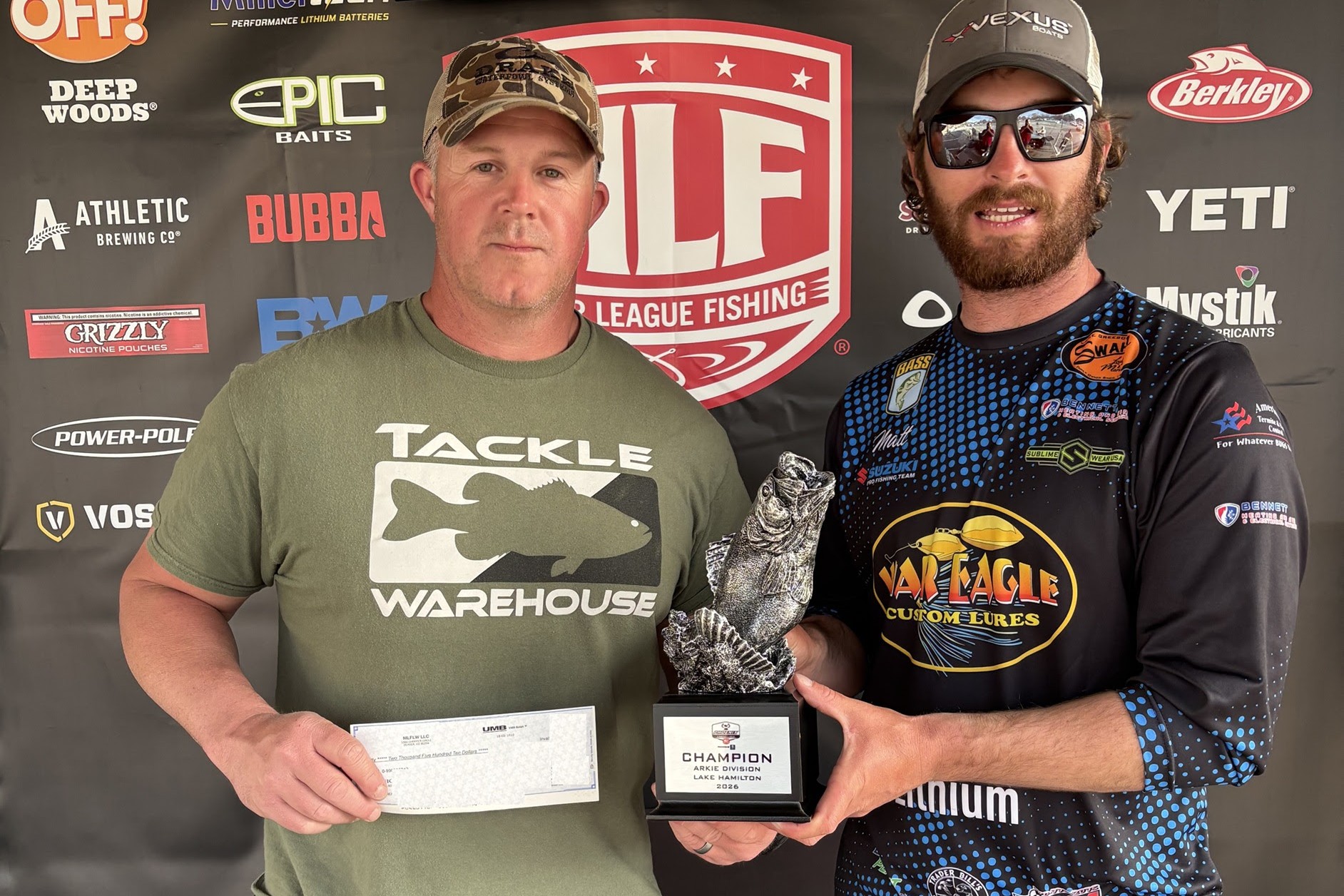
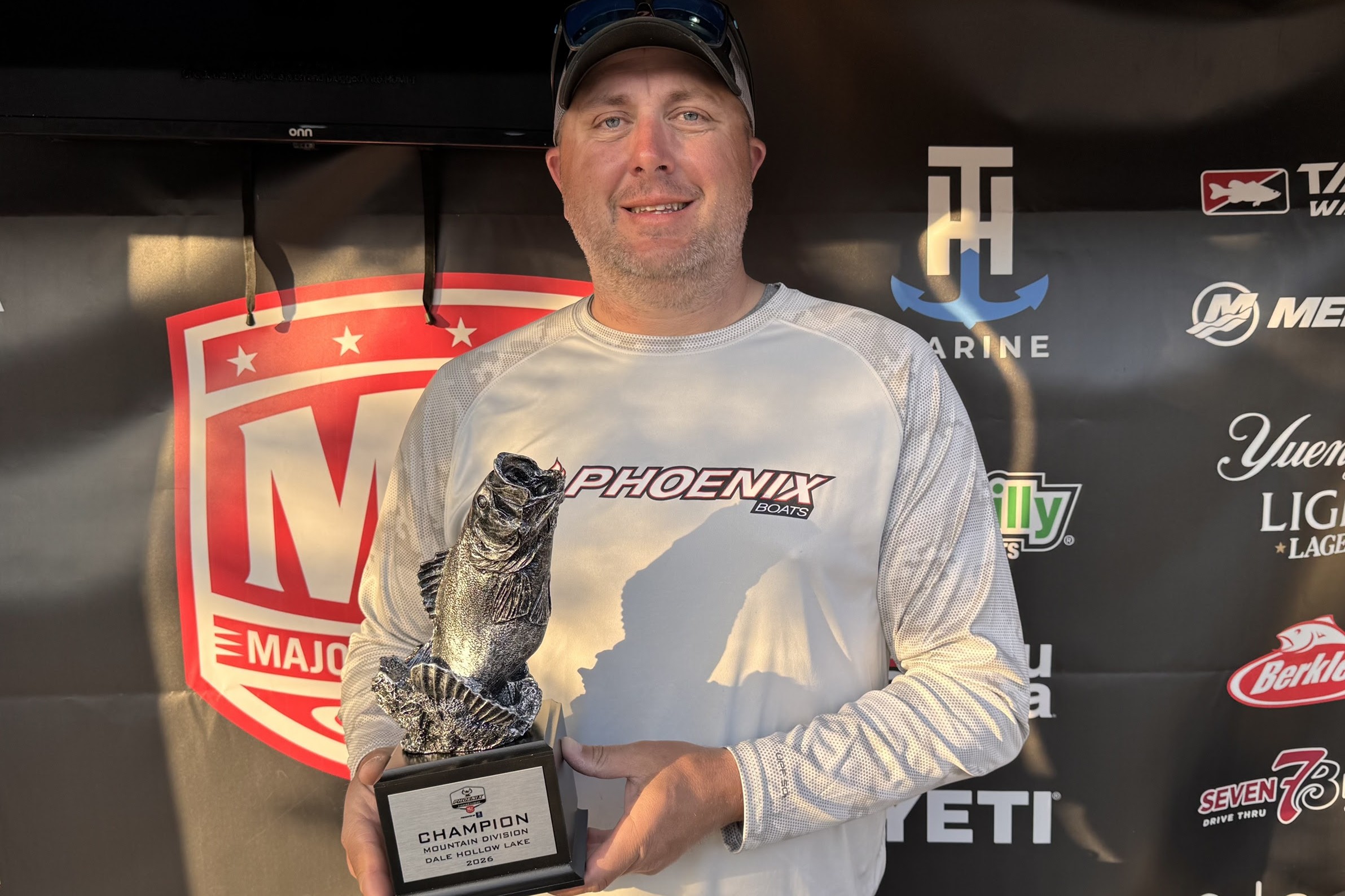
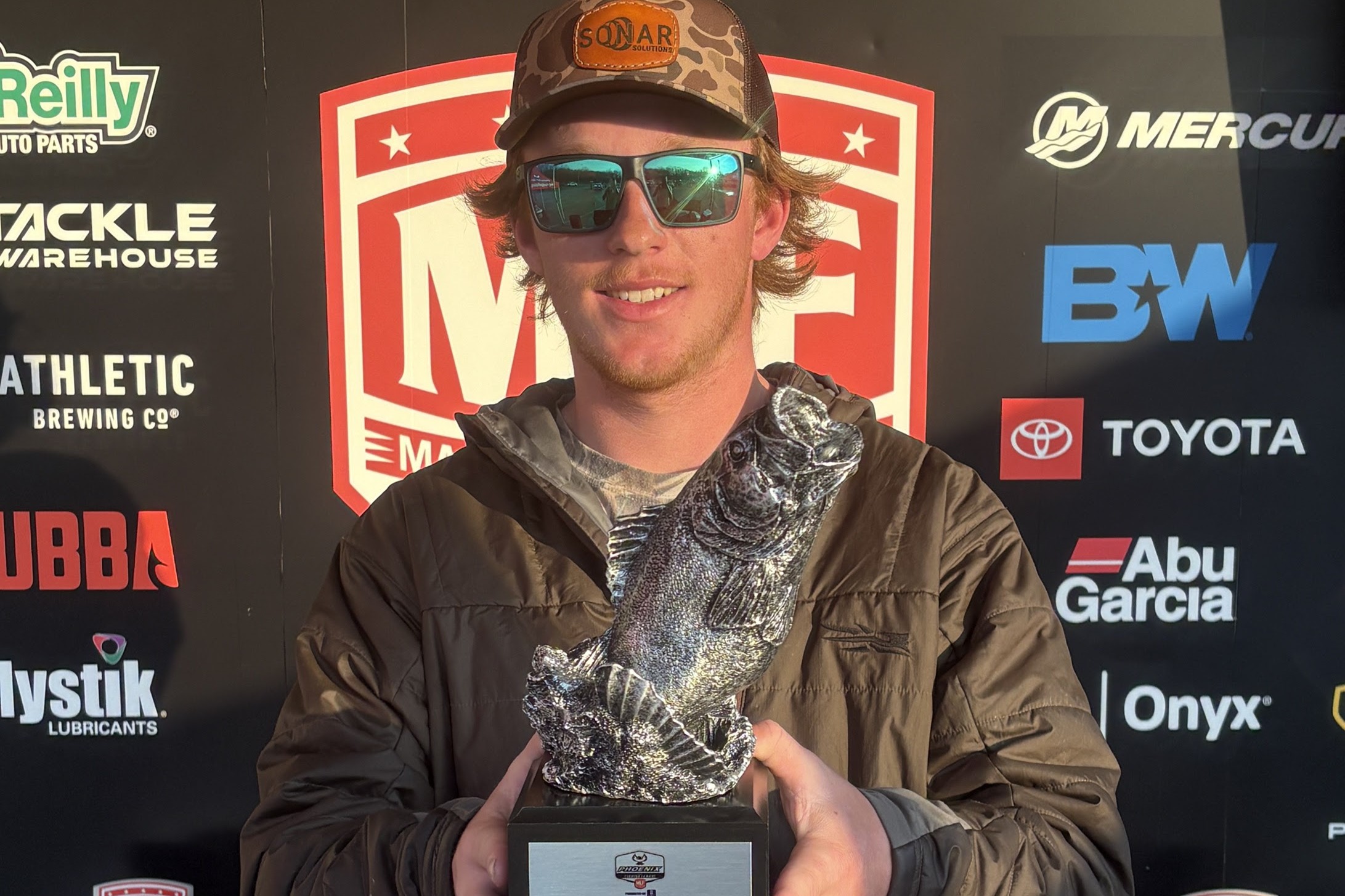
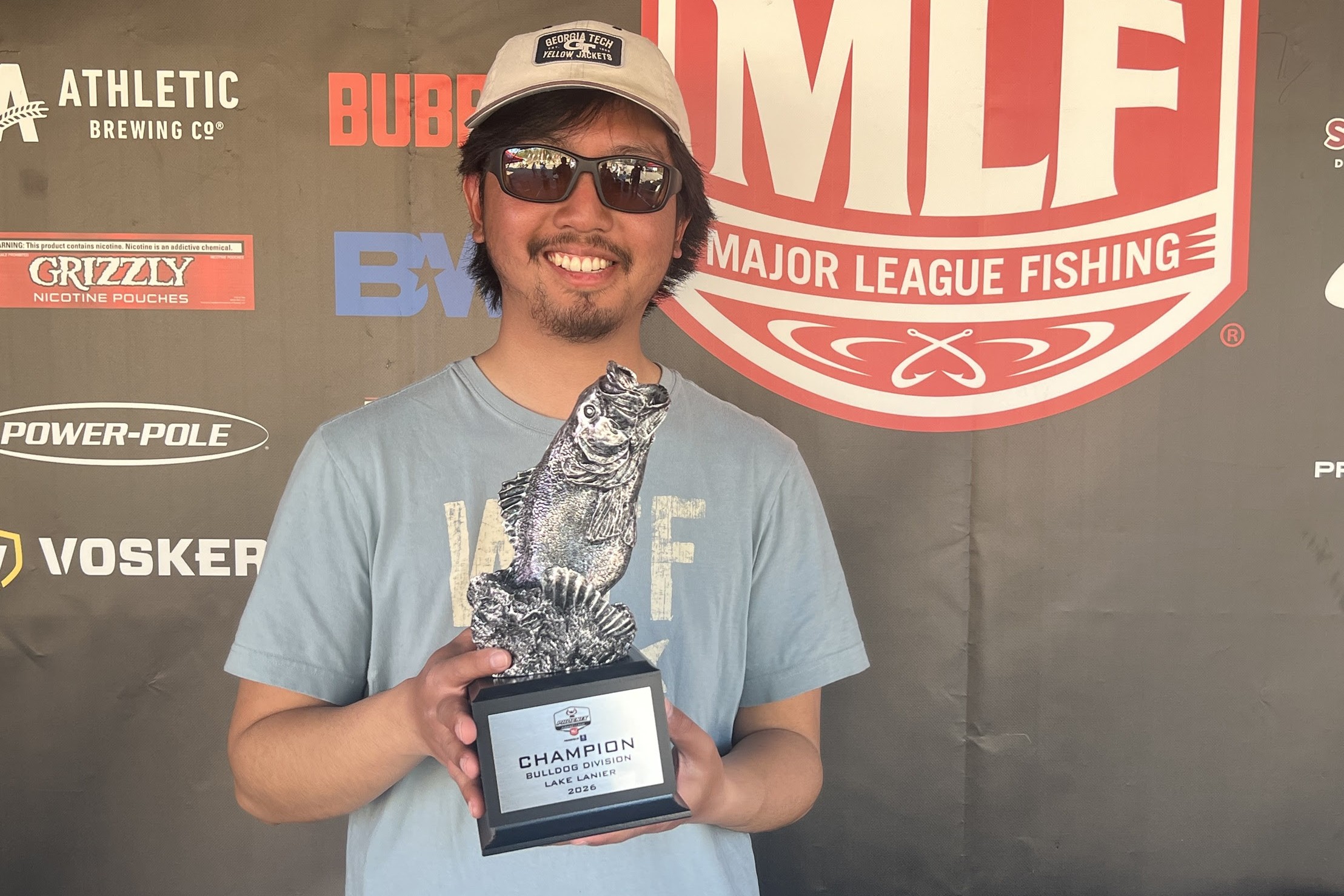









treabeton
3 days ago
Hey Mom and Dad,Thanks for the tuition money over the last four years. Have had a blast and Saturday I graduate with by BA degree! The…
AH2
3 days ago
Don’t be fooled it is only a matter of time before the NCAA gets its grubbymoney hungry hands all over competitive fishing by college…
GPaudler
3 days ago
Competitive killing with corporate sponsorship as an element of higher education. If the man who kills the most pounds of animal is to be…